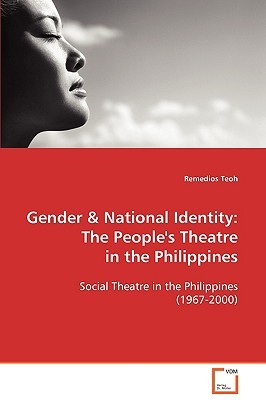
- We will send in 10–14 business days.
- Author: Remedios Teoh
- Publisher: VDM Verlag
- ISBN-10: 3639100867
- ISBN-13: 9783639100860
- Format: 15.2 x 22.9 x 1.2 cm, softcover
- Language: English
- SAVE -10% with code: EXTRA
Reviews
Description
This book investigates the history of the Philippine People's Theatre, its culture, aesthetic and pedagogical aims and its contribution to the changing status and role of the Filipino women.It focuses on the Philippine Educational Theater Association (PETA), the most significant exponent of the Philippine People's Theatre. The book differentiates itself from studies in this area in several ways. Firstly, by aiming to establish the connection between feminism, nationalism and radical theatre as these ideologies coalesced in the time of the inception of this pioneering theatre. Secondly, by highlighting the central role of two prominent PETA women: Cecile Guidote Alvarez, PETA's founder and Marilou Leviste Jacob, one of PETA's leading playwrights. Thirdly, this book extends to include PETA's more recent activities such as its mobile theatre. The content is of strategic interest to Third World development workers, to students and researchers investigating the various socio-economic, political, educational and cultural areas of Philippine studies.
EXTRA 10 % discount with code: EXTRA
The promotion ends in 19d.13:45:32
The discount code is valid when purchasing from 10 €. Discounts do not stack.
- Author: Remedios Teoh
- Publisher: VDM Verlag
- ISBN-10: 3639100867
- ISBN-13: 9783639100860
- Format: 15.2 x 22.9 x 1.2 cm, softcover
- Language: English English
This book investigates the history of the Philippine People's Theatre, its culture, aesthetic and pedagogical aims and its contribution to the changing status and role of the Filipino women.It focuses on the Philippine Educational Theater Association (PETA), the most significant exponent of the Philippine People's Theatre. The book differentiates itself from studies in this area in several ways. Firstly, by aiming to establish the connection between feminism, nationalism and radical theatre as these ideologies coalesced in the time of the inception of this pioneering theatre. Secondly, by highlighting the central role of two prominent PETA women: Cecile Guidote Alvarez, PETA's founder and Marilou Leviste Jacob, one of PETA's leading playwrights. Thirdly, this book extends to include PETA's more recent activities such as its mobile theatre. The content is of strategic interest to Third World development workers, to students and researchers investigating the various socio-economic, political, educational and cultural areas of Philippine studies.


Reviews